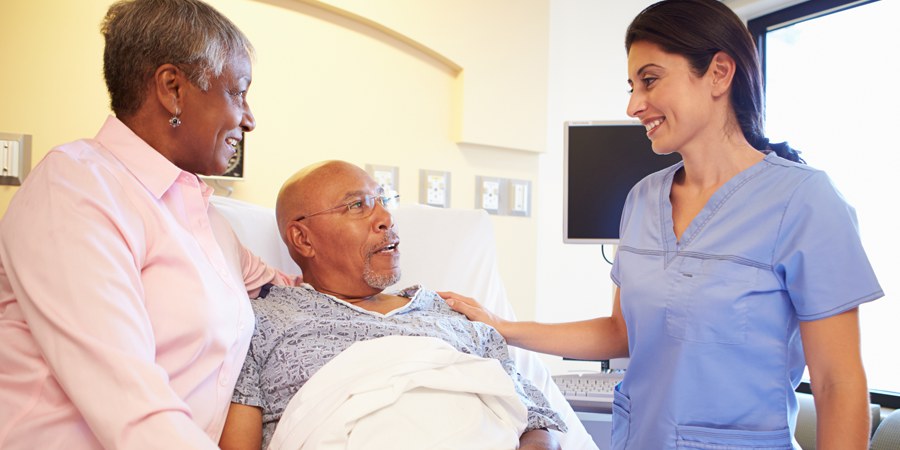Caring for a Stroke Survivor
July 2, 2016
If a loved one has survived a stroke, you are likely filled with relief, as stroke is the fourth leading cause of death in the United States. But despite the stroke not being fatal, recovery can often feel like the start of an uphill battle. Depending on the severity of the stroke and how long blood was blocked from the brain, it may take months or even years to regain functions. Because the brain was deprived of oxygen, and brain cells may be severely damaged or lost, it is very common for stroke survivors to lose cognitive and physical abilities.
The severity of complications from stroke vary widely from person to person. Each survivor's ability to recover is completely different, depending on the damage to the central nervous system, state of mental health and willingness to practice regained skills. If you plan to play an active role in a stroke survivor's recovery, it's important to maintain compassion and patience; progress can be slow and is not easily predictable. As May is National Stroke Awareness Month, here are some tips for caregivers and family members who want to aid in a loved one's stroke recovery:
- Establish a fun regimen. A physical therapist will likely assign the stroke survivor repetitive tasks to practice. Repetition is key to improving motor skills, but variety is also important to keep the brain engaged and increase retention. Try inventing games, for example, flipping a coin. Heads could mean rotating the arms in wide circles; tails could mean holding a stretch for 60 seconds.
- Let them sleep. Not only is it very normal for stroke survivors to sleep a lot, but it is vital to recovery. During REM sleep, the brain gets a chance to turn short-term memories about muscle movement into permanent memories. It's wonderful for survivors to sleep directly after practicing rehabilitation exercises as a way of "downloading" the skills.
- Monitor moods. Post-stroke depression is very common. Remastering basic tasks, especially those that are essential to physical independence, can be emotionally difficult. Relearning skills is frustrating and can feel hopeless. If your loved one seems to be having trouble controlling his or her emotions or seems increasingly despondent, seek out a mental health professional.
- Take care of yourself. You can't successfully help others unless you're mindful of your own health. Eat a nutritious diet, exercise regularly and stay on top of your regular doctors' appointments. If you don't have a primary care physician, find one at mygbmcdoctor.com.
GBMC offers a number of resources for stroke survivors, including the Center for Neurology, the Gilchrist Services Support Our Elders Program, Yoga for Stroke Survivors, and The Center for Rehabilitation Medicine. In addition, you may be interested in referring your loved one to a stroke support group. A brief list is included below for your reference. Remember progress, not perfection!
-
Bayview Medical Center
Third Wednesday of the month
6:00 - 7:30 pm
Burton Pavilion Conference Room: 1st floor
410-550-7793 -
Upper Chesapeake Medical Center
Stroke Club
Third Wednesday of every month
10:30 - 12:00 noon
443-643-1000 (main hospital number) -
Medstar Franklin Square
First Thursday of every month
1:00 - 2:30pm
443-777-7900 -
Saint Agnes Hospital
Fourth Thursday of every month, January - October
2:30-3:45pm
MMI Conference Room
667-234-3246




